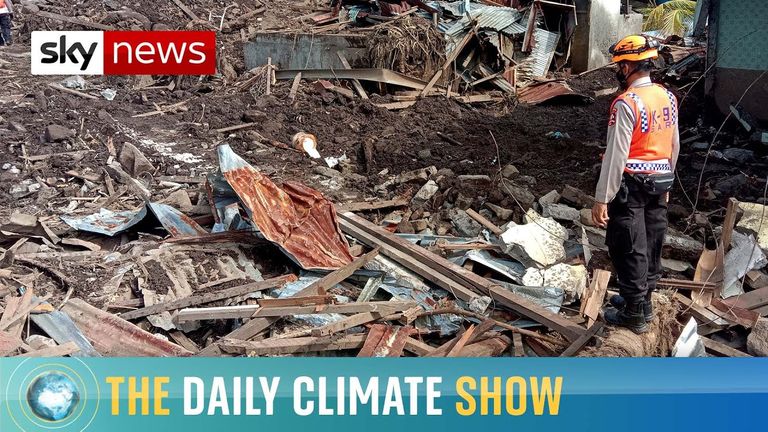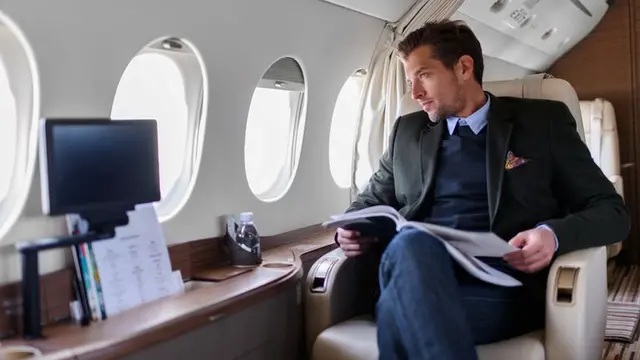The world's wealthiest 1% produce twice as much carbon emissions as the poorest 50%, according to a new report.
"Despite sharp falls in carbon emissions in 2020 linked to the
COVID-19
pandemic, the climate crisis - which is driven by the accumulation of emissions in the atmosphere over time - continued to grow," the Cambridge Sustainability Commission has warned.
Ahead of the
COP26
climate change summit, it says that government "must use this historic juncture to build fairer economies within the limits our planet can bear".

Image:The Daily Climate Show
**Watch: **
The Daily Climate Show
Dramatic lifestyle changes are needed among the so-called "polluter elite" to limit global warming to the 1.5 Celsius target set out in the Paris Agreement, the report said.
To avoid passing this limit, the richest 1% will need to reduce their emissions by a factor of at least 30 by 2030 - while the world's poorest 50% should be able increase their emissions by three times their current level - meaning that the ladder of cheap energy is not pulled up away from developing nations.
According to the report from the Cambridge Sustainability Commission on Scaling Behaviour Change - an expert panel of 31 leaders - individual and systemic changes go hand in hand.
Some of the report's recommendations are dramatic, including addressing over-consumption by "addressing advertising and the media's role in the normalisation and reification of high consumption behaviours", potentially by banning advertising.
It recommends "choice editing" in which "governments, businesses and those with direct control over production restrict the availability of high carbon products and services", arguing: "Undoing unsustainable behaviours is a whole lot harder than preventing unsustainable products from coming to market in the first place."
Among the commission's proposals are establishing what it describes as "a sustainable economy and society" by establishing a way to live "within planetary boundaries".
"This means initiating difficult conversations about limits, proposals to 'shrink and share' carbon budgets within and between countries and to regulate the production of polluting goods in the first place," it adds.
The authors call on governments to consider introducing wealth taxes and luxury carbon taxes, such as carbon sales taxes on SUVs, private jets or super yachts, and levies on business class or frequent fliers.
"Ending the tax-free status of aircraft fuel, unconditional aviation industry bailouts and tax breaks for company cars", is among their other recommendations.
 简体中文
简体中文



